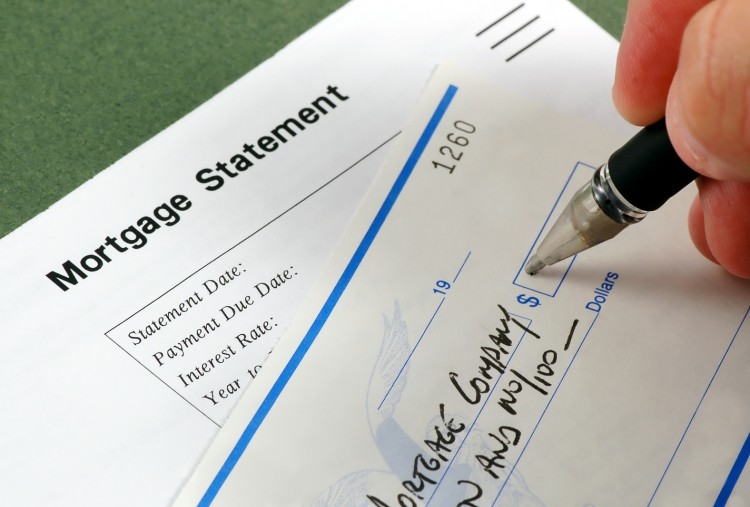
One of the most significant expenses you may have is a home loan or a mortgage. Mortgage payments, in addition to your monthly bills and other expenses, take up a sizable portionof your paycheck. Sadly, your financial situation may worsen if your funds suddenly become insufficient to cover your monthly payment obligation.
Like with other types of loans, on-time mortgage repayments will save you more money on interest charges and give you peace of mind. On the other hand, delays can lead to stress and further difficulties. Foreclosure and a negative impact on your credit score are just some examples. To avoid these situations, it is of paramount importance to take this financial commitment seriously.
Below are the five tips that can help you stay on top of your monthly mortgage payments.
1. Automate Your Monthly Payments
When you're busy, you're more likely to forget about your monthly mortgage payments. As a result, your following month's payment may be declared late, incurring late fees and possibly other applicable charges. These late fees would just increase your monthly bills.
Hence, it would be an excellent idea to automate your mortgage payments. Inquire with your bank about auto-deducting the amount due whenever your paycheck arrives. This ensures that your recurring bills are settled on time with minimal effort and that late payment penalties are avoided.
2. Create A Budget
In some cases, large expenses would arrive unexpectedly. When this happens, you should have enough financial resources to pay for them and your outstanding monthly bills, such as your mortgage. To accomplish this, you must first set a budget. This allows you to keep track of your finances and ensure that you have enough money set aside for emergencies while staying on top of your mortgage payments.
To create a monthly budget, you should have a good grasp of your income and expenses. Then, you can set aside specific amounts for each expense. You may also opt to use a home loan budget calculator to get more accurate figures as this tool takes into account the cost of your mortgage payments, along with your other monthly expenses. This would be a good practice, especially if money suddenly becomes tight.

3. Set Up An Emergency Fund For Backup
Staying on top of your monthly mortgage repayments can also be challenging if you rely mainly on a single source of income. But what happens when you get sick or injured and can't work for an extended period? This is where setting up an emergency fund comes in handy.Your emergency fund can help prevent your financial obligations from piling up quickly.
To build an emergency fund, you need to have a goal in mind. In this case, pay for your mortgage for a specific number of payment periods. Then, you can slowly start making consistent deposits into this fund, which is also feasible through automatic fund transfers. Similar to your loan repayments, the auto-transfer arrangement can help you conveniently save up for your target amount and monitor and organize your finances.
When an unfortunate situation comes, you are assured that you have another source to pay for the mortgage.
4. Pay Extra In Your Mortgage
Another way to avoid missed mortgage payments is to pay extra if you can. If you receive an unexpected bonus or cash incentive, set aside a portion of it towards your mortgage. You can reduce your amount by making extra payments on top of what's due and demandable each month,making it easier to pay off your home loan. In the long run, this will also result in a more stable financial standing.
5. Do Not Rush To Refinance
Sometimes, people with mortgage expenses resort to refinancing to manage their troubles. Refinancing is appealing because it may lower interest rates and shorten the terms of the mortgage. Some may believe that by choosing this option, they will be able to better manage their monthly obligations. However, refinancing may not always be viable.
Every time you refinance your loan, it'll cost you more money, making it an unwise decision. If possible, don't be in a hurry to refinance. Evaluate your financial situation and see if refinancing makes sense. It is advisable to consult your mortgage provider to explore other options. Thus, it is a must to keep a healthy relationship with them because when worse comes to worst, they can find and recommend ways to ease your financial burdens.
Bottom Line
Paying off a home loan is never easy because it usually involves a large sum of money. And with this comes the responsibility of understanding the basics of what a mortgage is- including the computation of the principal, mortgage rates, and late fees. Like other monetary obligations, you need to ensure monthly repayments to avoid more complicated financial problems. Keeping these tips in mind will help you stay on top of your mortgage and become a debt-free individual in no time.










Author
Homesgofast com
Homesgofast.com is an international real estate portal and news source for Google news. Publishing international real estate, finance, homes and travel-related news and blogs for a targeted audience since 2002. Each news item is circulated to thousands of potential readers each day and is also available to the millions of people who sign up for Google news alerts. Find homes offered for sale and to rent direct from owners and some of the best real estate agents from over 35 countries